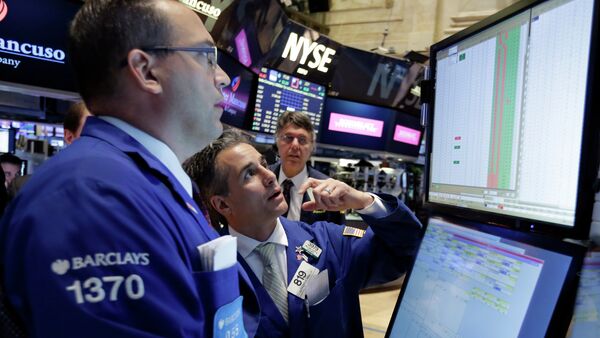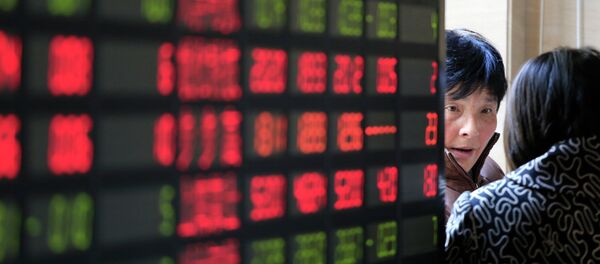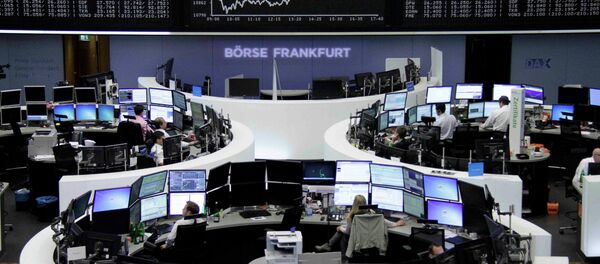Kristian Rouz — US equity futures rose for the second straight day early on Tuesday, with S&P 500 heading for its new record highest, as more solid macro data and hopes for a deal between Greece and its creditors rendered investors more confident of the market perspective. In addition, Monday's trading in the US was a robust rally against the odds of the increased volatility.
News of the increase in US core capital goods propelled stock futures higher, while a decline in transportation orders stirred little concern. The global environment is favourable towards US equities as investment capital is fleeing the developing markets, while Japan and the Eurozone are mired in excessive stimulus programmes they are less investment-appealing than the US.
The US Department of Commerce reported early on Tuesday that non-defense capital goods orders rose 0.4% in May after a decline of 0.3% in April, thus signaling an improvement in the macroeconomic situation. What is more important, the increase in orders for equipment came amidst the still-low energy price and the still-strong and rising dollar, the two factors impairing US manufacturing. Thus, today's data might suggest a rebound in America's industrial production and an acceleration in economic expansion, a good sign for stock markets as well.
Another two factors contributing to the expected gains in US stocks on Tuesday are European shares, at their three-week highest, and the limited progress in the Greek debt situation.
Nasdaq 100 e-minis were 0.18% higher, and the Dow e-minis were 0.11% up by the open on Tuesday amidst thin trading volumes — just 8,690 and 9,589 shares changed hands for each index, respectively. Equities of the electronics-maker Blackberry added 7.6% overnight as the company published a well abpve expectations quarterly report.
While US shares are on the rise, more economic data are anticipated for clues at economic health, likely defining further movements of stocks. Thus far, it is still an ascending trend mostly. The more dovish US Fed, not in a hurry to hike borrowing costs, and stronger investors' confidence due to data and the Greek situation, are fueling a relief rally.



